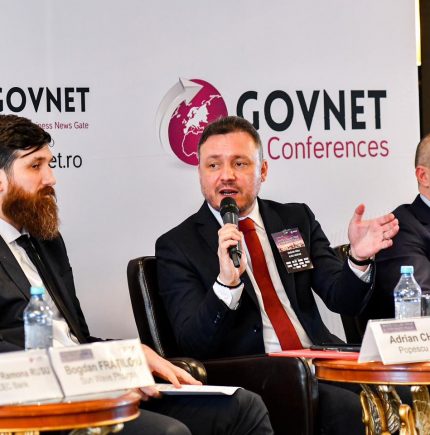In December 2019, one of the biggest criminal law cases in the history of post-revolutionary Romania, known as “Rompetrol II” (derived from “Rompetrol I”), was dismissed and the measures imposed in this case, including seizures, had been raised for the most part. The decision to maintain the dismissal order remained final at the High Court of Cassation and Justice, on Friday, July 10th. Both the case and the sentence aroused controversy and mixed emotions in the public space and many asked questions like “who loses, who wins?”. Given that we are talking about a case file that totaled over 3000 volumes (Rompetrol I and II), things are far from being simple, I would say, after 15 years of working on it and having the responsibility of coordinating KazMunayGas / Rompetrol’s defense. Among other things, we are talking about a debt that the state has recovered in excess of 90% – probably the highest percentage recovered from such a historical debt out of all that meant the Romanian privatization process after the ‘90s.
In May 2016, DIICOT indicted four former ministers involved in the Rompetrol II case – Mihai Tănăsescu, Dan Ioan Popescu, Sebastian Vlădescu and Gheorghe Pogea. At the same time, their movable and immovable property was seized. Prosecutors also seized the assets of the Rompetrol group, including the Petromidia refinery. Initially, 14 people were charged in this case, including Sorin Marin, former business partner with Dinu Patriciu and shareholder in Rompetrol, Alexandru Nicolcioiu, former Chairman of the Board of Petromidia, Adrian Constantin Volintiru, former president of AVAS, American citizens George Philip Stephenson and Colin Richard Hart. The charges against them were the establishment of an organized criminal group, abuse of office, fraud, embezzlement, tax evasion, money laundering, manipulation of the capital market through transactions or trading orders.
Prosecutors alleged that in 1998, Dinu Patriciu and Sorin Marin, along with U.S. citizens George Philip Stephenson and Colin Richard Hart, formed a cross-border organized crime group aimed at misleading the authorities while signing and carrying out privatization contracts. This group was later joined by decision-makers from the State Property Fund or from the Government, who, by exercising in bad faith their duties, favored the achievement of the goals of this group.
Debt relief?
After almost 4 years from the resumption of the file in 2016, by the Ordinance of December 5th, 2019, it was established that the facts regarding the Privatization of Vega, the Privatization of Petromidia, the Issue of convertible bonds by SC Rompetrol Rafinare SA under GEO no. 118/2003, the operations carried out with Steaua Română Refinery and with Rafo Oneşti are not covered by the criminal law.
If we ask ourselves the question “who loses, who wins”, one thing is certain: the state does not lose following the decision to close the case. What does the Romanian state have at this moment after the privatization and post-privatization of Petromidia (the most important operation discussed in connection with the Rompetrol group and this case) and what did the takeover by Kaz Munay Gaz suppose? At the moment, we have the most technologically advanced refinery in South-Eastern Europe, the prestigious Wood Mackenzie study placing it on the 9th place in Europe as a level of technology. And at this moment it has a shareholder who provides it with the resources or refining, a shareholder as capable as possible to operate it – the third taxpayer to the state budget and the second exporter of the country.
If we go beyond the macro perspective and take into account some of the actual topics in this case, we can point out:
The conversion of Petromidia’s historical fiscal debts into bonds that are convertible into shares, by GEO 10018/2003 (which in an “interesting” way in the public space even received the label of “debt forgiveness”). It was surprising to me that this label somehow stuck. What are we really talking about this? About fiscal debts, many of them accumulated in the period before the privatization of Petromidia, debts converted into bonds, bonds held by the Romanian state. The Romanian state received more than $ 250 million in interest on those bonds. The bonds were redeemed partially for $ 75 million, and the rest were converted into shares. The Romanian state is currently a shareholder of the refinery, has over 44% of the shares, and, according to a Memorandum concluded in 2013 between KMG International and the Romanian government, KMG International has undertaken the obligation that, if the Romanian state decides unilaterally to sell this package of shares, to offer to buy them in two installments.
If we complete all these calculations, we find that from the historical fiscal debt, the Romanian state has recovered, in money and shares, over 90% of its nominal value. It is, by far, the only example in the capitalist history of Romania in which a proper satisfaction of state interests regarding historical fiscal debts is achieved, as a result of the development of privatization procedures. By comparison, I submitted to the case file, at one point, a list of 33 pages with fiscal facilities given by the Romanian state to other companies, consisting of real debt forgiveness. This issue, which involves recovering over 90% of debt, is certainly not a debt write-off.
Romania’s development as an energy hub for the Black Sea region
Moreover, KMG International has undertaken the development of a Romanian-Kazakhstan Investment Fund, with a capital contribution of 150 million dollars, pursuing a total asset target of up to 1 billion dollars, depending on market conditions. The fund was set up on the basis of a memorandum signed in 2013 between the Romanian state and Kazakh shareholders. The Romanian state acquired in ownership, at the expense of KMGI, a package of 20% of the shares of S.C. “Kazakhstan-Romanian Energy Investment Fund” S.A. (The “Fund” or the “Kazakh-Romanian Fund”), through the “Energy Participation Management Company” S.A. (SAPE, company wholly owned by the Romanian state, represented by the Ministry of Energy).
Currently, KMG International is one of the most important economic actors in Romania, proving compliance with the commitment to contribute to the development of Romania as an energy hub for the Black Sea region. Thus, KMG International has made investments worth approximately $ 4 billion since 2007 on the local market, in operations carried out by more than 5,000 employees. The group paid over $ 12 billion to Romania’s budget in 2007-2014.
About Albu – Legal
Gabriel Albu is Managing Partner and founder of Albu-Legal, a boutique law firm specializing in business criminal law / white collar crime. Over time, lawyer Gabriel Albu has been involved in a large number of high-level criminal law cases in Romania, managing complex cases at the highest level of representation, that have involved mainly allegations of tax evasion and fraud against the financial interests of the European Union, allegations of corruption, financial fraud, capital market offenses and public procurement fraud. The most recent success achieved by Gabriel Albu was the case known generically as “Rompetrol II”, where the team coordinated by him managed to obtain the dismissal of the case, a solution confirmed in July 2020 by the High Court of Cassation and Justice.



